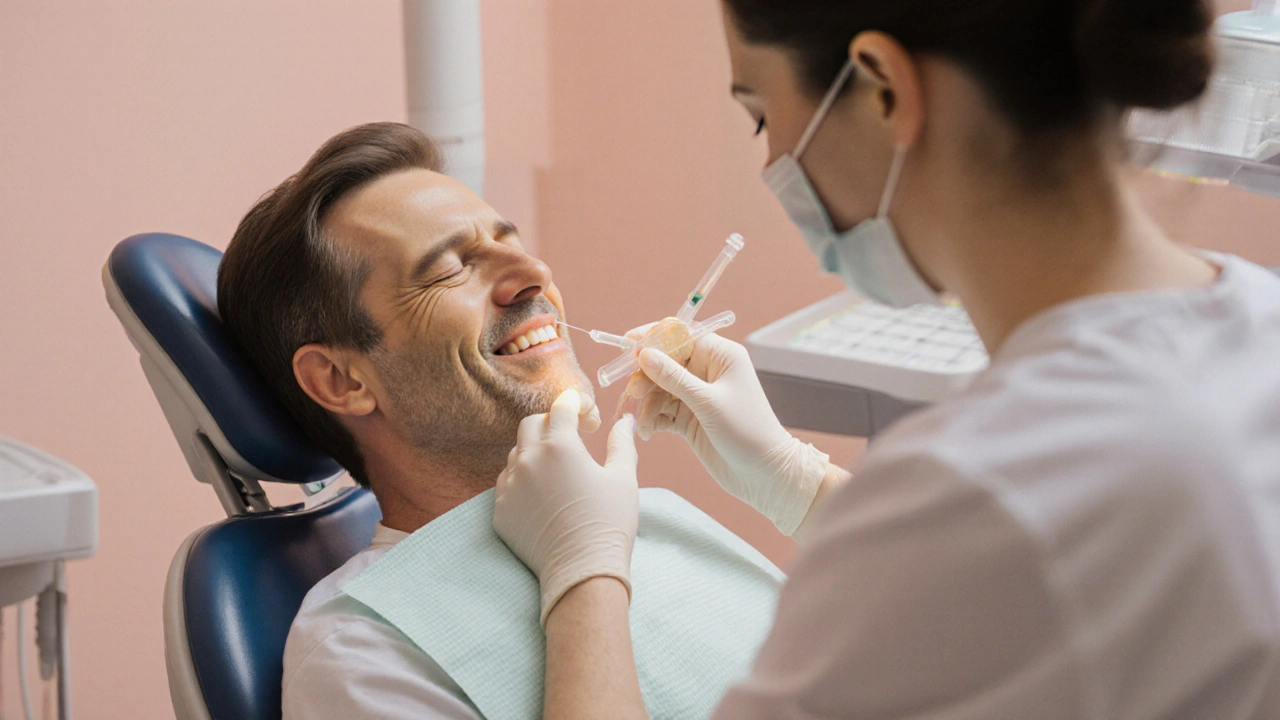Dental Anxiety: Simple Strategies to Stay Calm at the Dentist
Feeling nervous before a dental appointment is more common than you think. The sound of the drill, the bright lights, or just the idea of someone poking around in your mouth can send your heart racing. The good news? You don’t have to let fear run the show. With a few easy steps, you can keep anxiety in check and walk out of the chair with a smile.
What Triggers Dental Anxiety?
Most people point to past painful experiences, a loud drill, or the smell of antiseptic as the main culprits. Even hearing a friend’s horror story can make your stomach flip. Some folks worry about losing control, while others hate the feeling of being judged for their oral health. Knowing exactly what scares you helps you target the right solutions – whether it’s a calming scent, a distraction, or a simple conversation with the dentist.
Practical Tips to Reduce Fear
Start by scheduling your appointment for a time when you’re not rushed. Arriving early lets you settle in, breathe, and fill out any paperwork without the pressure of a waiting room crowd. Bring headphones and play soothing music or an audiobook to drown out the drill’s whine. Ask the dentist to explain each step before they start; hearing a clear plan can replace the unknown with confidence. If you’re comfortable, use a stress ball or squeeze a small pillow to keep your hands busy.
Breathing tricks work wonders. Try the 4‑7‑8 method: inhale for four seconds, hold for seven, and exhale slowly for eight. Do this a few times before the chair and again during the procedure. A quick eye‑focus exercise—looking at a fixed point on the ceiling—helps ground you when the room feels chaotic. If you have a favorite calming scent, like lavender, a tiny dab on a cotton ball can give you a subtle, soothing reminder.
Talking to your dentist openly makes a big difference. Let them know you’re anxious; most clinicians will take extra time to check in, lower the volume of the drill, or pause when you need a break. You can also request a “stop” signal, like raising your hand, so you stay in control. Some offices offer nitrous oxide (laughing gas) for a light, short‑lasting calm. It’s safe, fast‑acting, and wears off quickly.
After the visit, give yourself a few minutes to decompress. Sip water, stretch your neck, and remind yourself that you faced the fear and made it through. If the appointment left you more stressed, write down what triggered the anxiety and what helped. Over time, you’ll spot patterns and refine your coping toolkit. Celebrate the win—whether it’s a painless cleaning or just sitting through a short check‑up.
Remember, dental anxiety isn’t a sign of weakness; it’s a common response that many have learned to manage. By planning ahead, using simple breathing and distraction tricks, and keeping the dentist in the loop, you can turn a dreaded trip into a routine part of staying healthy. Next time you hear the phone ring for an appointment, take a deep breath—you’ve got the tools to stay calm.

- Sep, 26 2025
- Comments 13